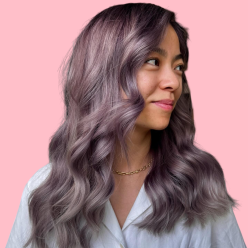Time flies when you are having fun! I realized, I have not created any content for my blog in almost two years. With more time on my hands, due to COVID-19 and less traveling, I have doubled-down on building better habits and routines for myself. I often reflect on where I am, and where I want to be. Who do I want to become? Even more so with COVID-19 when I, the extreme extrovert, were left with …. me. As a true consultant, there is always a framework for ‘being the best version of yourself’ – and I have borrowed this from the firm. It consists of three areas: body, mind and purpose. I have committed to creating a mini series of posts on some of the topics, and how I continue to work on improving myself. My first post in this series will be around Sleep & recovery.

“I have doubled-down on building better habits and routines for myself”
Body – Sleep & recovery: Process of restoration and renewal for the mind and body which is crucial for mood, energy and cognitive abilities.
Last year I bought a ring to track my sleep. I was intrigued by the features of this smart little device. It measures my heart rate, heart rate variability, temperature deviations, type of sleep and so much more. Here is a snapshot of my sleep the past 12 months:

Ugh, September was not a good month. Sleep deprivation messed with my ability to focus and concentrate, and I felt it. I did not need a device to tell me that. Still, I probably would not have paid too much attention to it or reflected on my progress, if I had not documented it. I have a nice average of seven hours of sleep per night, and I feel like I am the best version of myself with more than seven hours of sleep. According to researchers, a full night of high quality sleep help increase one’s ability to learn and retain memories.
When we talk about sleep, there are really only two types of sleep: 1) Rapid-eye-movement (REM) sleep, also called “dream sleep, which produces brain-wave activity similar to when the brain is awake. 2) Non-rapid-eye-movement (NREM) sleep, during which the brain produces steady, rhythmic waves that differ from both the REM phase and the waking brain. Below is a snapshot of my sleep, which is divided into awake time, REM, light and deep sleep. I got a 7h 57 min of sleep, which was divided into 1h 50 min of REM sleep and 2h 50 min of deep sleep. Pretty decent!

My resting heart rate tells me, whether I have been good or bad. A high resting heart rate indicates I ate my dinner too late, drank alcohol or perhaps a lack of exercise during the day. It makes me conscious of my behaviour in the late PM. Another thing I worked on is to track and improve my REM sleep. I have done all sorts of things which includes lowering the room temperature, sleeping with a mask, not drinking alcohol, and eating magnesium before going to bed, etc. It is a fun hobby for me to look at the data and see how I can improve it.
Did you know:
- Sleep is a time of memory consolidation, brain and neurochemical cleaning, and cognitive maintenance
- 40% of people get less than 7 hours of sleep per night (people need on avg. 7 – 9 hours of sleep)
- 30% of adults have a hard time falling asleep, and about 10% meet the diagnostic criteria for chronic insomnia
- A 30 min nap can reverse the hormonal impact of a night of poor sleep
- Pulling an all-nighter results in cognitive impairment equal to 0.1% blood alcohol level – equal to being legally drunk
The key to a good night’s sleep is to practice a good sleep hygiene. Here is my recipe for a good night’s sleep, which seem obvious at first hand, but is hard to follow:
- Stick to a schedule of sleeping and waking times every day
- Avoid heavy meals, caffeine and alcohol at night
- Dim artificial lights, turn off all your screens 1 hr before going to bed
- Keep your room temperature low at night (e.g., 16-19 degrees Celsius)
- Make sure your room is pitch black (e.g., dark curtains)
- … other minor tips and tricks:
- Use a silk eye mask and ear plugs
- Restrict apps from 11pm-7am (screen time > downtime and app limits)
- Meditate for 10-15 min before going to bed
- Download the app Flux for your phone and laptop
- Get a wake-up light alarm clock (e.g., Philips wake-up light)
Furthermore, I highly recommend Matthew Walker’s book “Why we Sleep”. It gave me a good understanding of the wide-ranging negative effects of sleep deprivation, and it made me prioritize counting sheep. If you are living a busy life and want to have my key take aways, feel free to comment below, and I will get them straight to your inbox.
